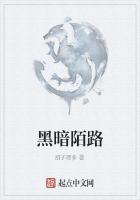If pleasure is connected with the mere apprehension (apprehensio) of the form of an object of intuition, apart from any reference it may have to a concept for the purpose of a definite cognition, this does not make the representation referable to the object, but solely to the subject.In such a case, the pleasure can express nothing but the conformity of the object to the cognitive faculties brought into play in the reflective judgement, and so far as they are in play, and hence merely a subjective formal finality of the object.For that apprehension of forms in the imagination can never take place without the reflective judgement, even when it has no intention of so doing, comparing them at least with its faculty of referring intuitions to concepts.If, now, in this comparison, imagination (as the faculty of intuitions a priori) is undesignedly brought into accord with understanding (as the faculty of concepts), by means of a given representation, and a feeling of pleasure is thereby aroused, then the object must be regarded as final for the reflective judgement.A judgement of this kind is an aesthetic judgement upon the finality of the object, which does not depend upon any present concept of the object, and does not provide one.When the form of an object (as opposed to the matter of its representation, as sensation) is, in the mere act of reflecting upon it, without regard to any concept to be obtained from it, estimated as the ground of a pleasure in the representation of such an object, then this pleasure is also judged to be combined necessarily with the representation of it, and so not merely for the subject apprehending this form, but for all in general who pass judgement.The object is then called beautiful; and the faculty of judging by means of such a pleasure (and so also with universal validity) is called taste.For since the ground of the pleasure is made to reside merely in the form of the object for reflection generally, consequently not in any sensation of the object, and without any reference, either, to any concept that might have something or other in view, it is with the conformity to law in the empirical employment of judgement generally (unity of imagination and understanding) in the subject, and with this alone, that the representation of the object in reflection, the conditions of which are universally valid a priori, accords.And, as this accordance of the object with the faculties of the subject is contingent, it gives rise to a representation of a finality on the part of the object in respect of the cognitive faculties of the subject.
Here, now, is a pleasure which-as is the case with all pleasure or displeasure that is not brought about through the agency of the concept of ******* (i.e., through the antecedent determination of the higher faculty of desire by means of pure reason)-no concepts could ever enable us to regard as necessarily connected with the representation of an object.It must always be only through reflective perception that it is cognized as conjoined with this representation.As with all empirical judgements, it is, consequently, unable to announce objective necessity or lay claim to a priori validity.But, then, the judgement of taste in fact only lays claim, like every other empirical judgement, to be valid for every one, and, despite its inner contingency this is always possible.The only point that is strange or out of the way about it is that it is not an empirical concept, but a feeling of pleasure (and so not a concept at all), that is yet exacted from every one by the judgement of taste, just as if it were a predicate united to the cognition of the object, and that is meant to be conjoined with its representation.
A singular empirical judgement, as for example, the judgement of one who perceives a movable drop of water in a rock-crystal, rightly looks to every one finding the fact as stated, since the judgement has been formed according to the universal conditions of the determinant judgement under the laws of a possible experience generally.In the same way, one who feels pleasure in ****** reflection on the form of an object, without having any concept in mind, rightly lays claim to the agreement of every one, although this judgement is empirical and a singular judgement.For the ground of this pleasure is found in the universal, though subjective, condition of reflective judgements, namely the final harmony of an object (be it a product of nature or of art) with the mutual relation of the faculties of cognition (imagination and understanding), which are requisite for every empirical cognition.The pleasure in judgements of taste is, therefore, dependent doubtless on an empirical representation, and cannot be united a priori to any concept (one cannot determine a priori what object will be in accordance with taste or not-one must find out the object that is so); but then it is only made the determining ground of this judgement by virtue of our consciousness of its resting simply upon reflection and the universal, though only subjective, conditions of the harmony of that reflection with the knowledge of objects generally, for which the form of the object is final.
This is why judgements of taste are subjected to a critique in respect of their possibility.For their possibility presupposes an a priori principle, although that principle is neither a cognitive principle for understanding nor a practical principle for the will, and is thus in no way determinant a priori.












